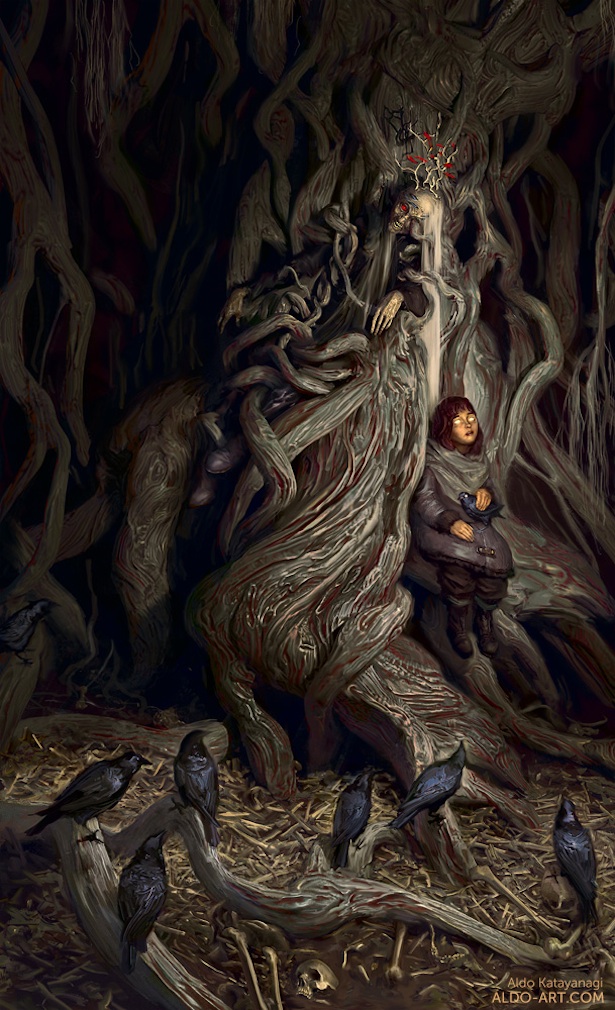‘The Door’ is the fifth episode of the sixth season of HBO’s fantasy television series Game of Thrones, and the 55th overall.
The first bad message of the episode is seen in the gloomy House of Black and White: two teenagers, Waif and Arya, fight in an exercise of their training. No healthy society trains cute teenagers to become ruthless assassins. (Remember that what Arya did in a previous episode is worthy of a sadistic scene filmed by a madman like Tarantino.) Jaqen H’ghar, who presides over the temple, has no male apprentices: only those two girls and some silent servants. He doesn’t even have a sexual interest in the girls. The way these shots, while fictional, put pressure on the collective white psyche should never be underestimated. Much of today’s psychosis in the West is due to whites wanting to imitate what they see on TV.
The second bad message of the episode is seen when Theon, at the Kingsmoot gathering, supports Yara’s claim to the throne before Euron arrives. Far away, in Vaes Dothrak, Jorah makes a fool of himself telling Dany, in front of Daario, that he loves her—even though he knows that Daario, not him, has been banging Dany. Typical of an emasculated man in front of the woman’s figure.
 Feminism also reigns in the great pyramid of Meereen even with Dany absent. Kinvara, the ‘High Priestess of the Red Temple of Volantis, the Flame of Truth, the Light of Wisdom, and First Servant of the Lord of Light’ speaks to Tyrion and Varys with such amazing clairvoyant powers that she leaves this pair dumbfounded, presumably the smartest pair of males in Westeros. Never in the series had Varys been psychologically beaten like that.
Feminism also reigns in the great pyramid of Meereen even with Dany absent. Kinvara, the ‘High Priestess of the Red Temple of Volantis, the Flame of Truth, the Light of Wisdom, and First Servant of the Lord of Light’ speaks to Tyrion and Varys with such amazing clairvoyant powers that she leaves this pair dumbfounded, presumably the smartest pair of males in Westeros. Never in the series had Varys been psychologically beaten like that.



